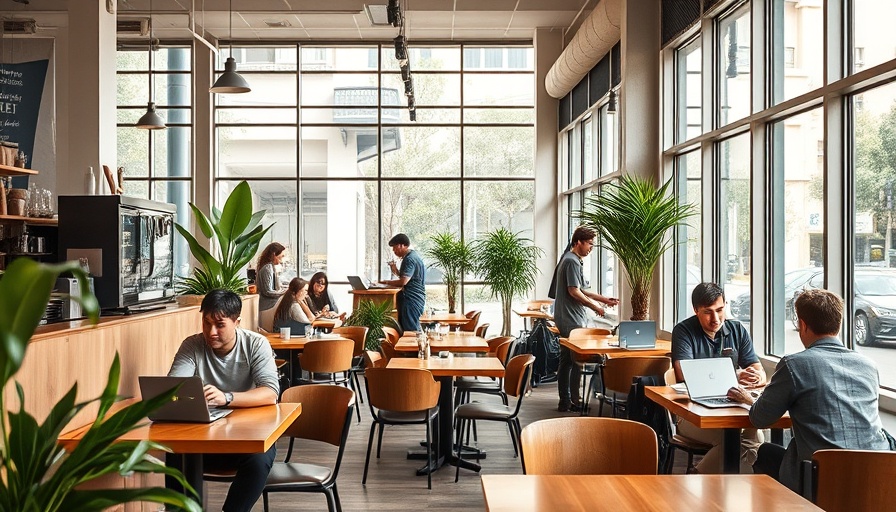
Starbucks in South Korea Cracks Down on Remote Work Equipment
Starbucks South Korea is taking a stand against the trend of remote work spilling into its cafés. The coffee chain has recently implemented a policy prohibiting patrons from bringing bulky items like desktop computers and printers into its stores. This decision highlights the growing issue of cagongjok—the phenomenon where customers set up makeshift offices in coffee shops, taking advantage of the relaxed atmosphere and free Wi-Fi.
A Space for All: Starbucks' New Vision
The policy aims to create a more enjoyable experience for customers who expect the coffee chain to serve as a welcoming third space, a term coined to describe Starbucks’ role between work and home. Current Starbucks locations in South Korea number over 2,050, outpacing Japan despite its smaller population, indicating a significant market penetration. As a result, maintaining an inviting environment becomes imperative.
Changing Attitudes Toward Remote Working
Since the boom of remote work during the COVID-19 pandemic, many individuals have turned to cafés as cost-effective working alternatives, a trend mirrored in various cultures around the globe. Jo Elfving-Hwang, a cultural expert, noted the severe shift in behavior—many patrons now view the café as a workplace rather than a place for coffee. The increasing visibility of such practices raises questions about the boundaries between work and leisure spaces.
Hearing from the Community
This change will likely spark differing opinions among regular customers. While some appreciate the relaxed environment for enjoying coffee and getting work done, others may feel restricted by the new limits. The balance Starbucks is trying to achieve indicates not only the shifting dynamics of workspaces but also the broader conversation about consumer behavior and commercial spaces. The café’s management clearly aims to retain a balance that encourages social interactions without overwhelming the intended atmosphere.
The Future of Cafés as Workspaces
As remote work remains prevalent, this policy could hint at a larger trend transforming how businesses operate in consumer spaces. It brings to light critical issues surrounding sustainability in business and the adaptation of spaces designed for community engagement. By limiting bulky work equipment, Starbucks in South Korea aspires to maintain a sense of community and comfort for all patrons, challenging other businesses to consider how their environments cater to evolving customer needs.
In a world where work and life increasingly overlap, staying informed about shifts in consumer behavior is crucial. This situation at Starbucks is a relevant case study for business professionals navigating the changing landscape of work environments. How will your business adapt?
 Add Row
Add Row  Add
Add 



Write A Comment